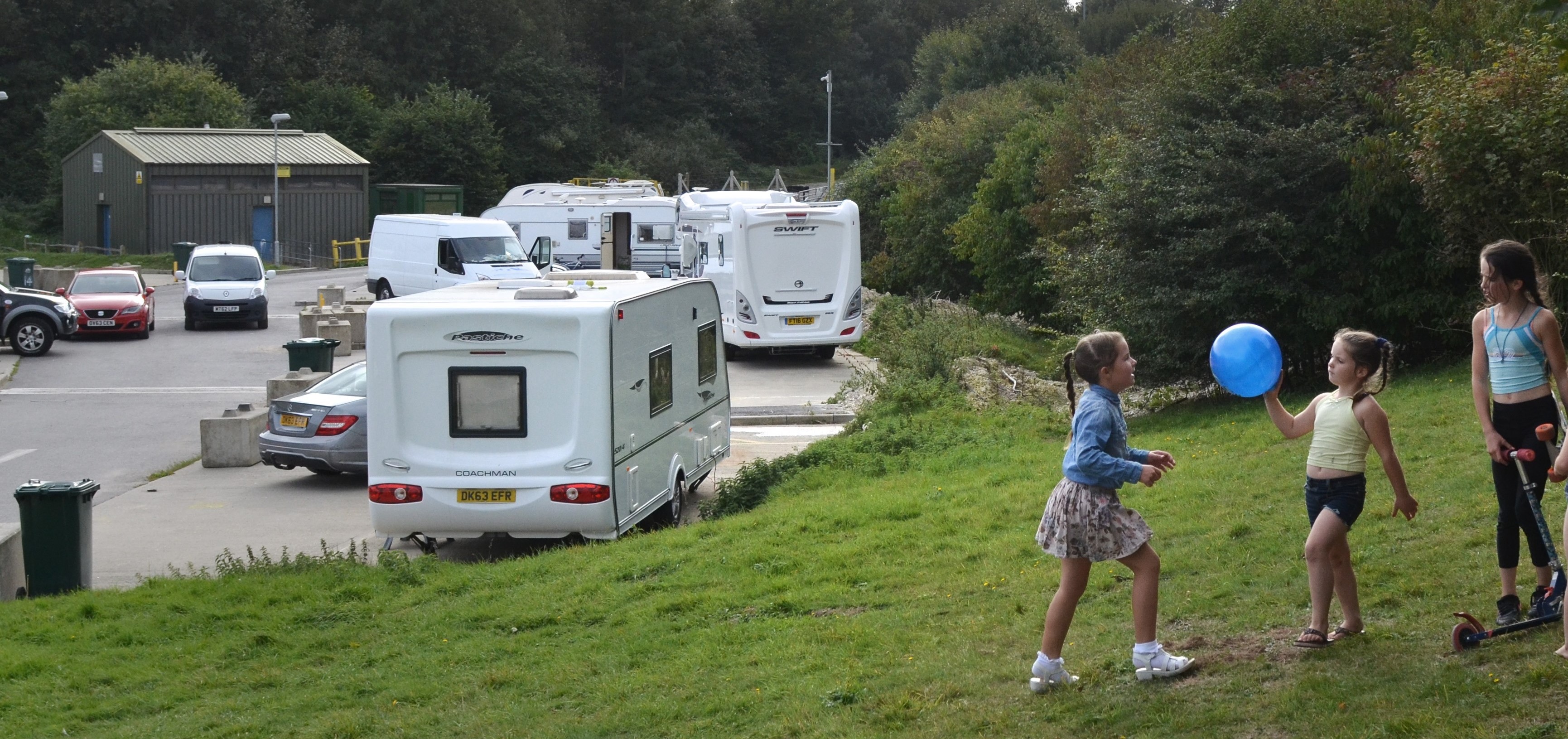Yesterday, the government announced plans to give police ‘tough new powers’ to tackle unauthorised encampments. We are deeply concerned that the proposals present unauthorised encampments and antisocial behaviour as one and the same thing. We are equally concerned that the proposals fail to recognise that the main cause of unauthorised encampments is the abject failure of government to identify land for sites and stopping places.
“Living on the road, you can’t make plans. You’re living in fear, every waking hour, even when you sleep. On one occasion we received a Section 61 with five hours’ notice after being at this spot for a day and a half. We moved on and were evicted again. We received three evictions in five days. I had a two year old. You don’t have time to be a parent when the police are turning up at your door four or five times a day.”
Angela Barnett, National Caseworker at Friends, Families and Travellers
Romany Gypsies have lived in England since the 16th century or before and Irish Travellers have lived here since well before the 19th century. Nomadism is not a new concept in England, yet the government has largely turned a blind eye to local authorities’ lack of progress in identifying land where Gypsies and Travellers can live as part of their spatial planning duties.
Failure of government to account for Gypsies and Travellers in spatial planning
Under the government’s ‘Planning Policy for Traveller Sites’, local authorities in England are required to identify a supply of specific deliverable sites sufficient to provide five years’ worth of land for Gypsy and Traveller pitches against their locally set targets. However, research conducted in 2016 showed that only 10 out of 66 local authorities in the South East and only 15 out of 70 in the East and West Midlands were complying with their statutory duty. In the three years since this information has been publicly available, nothing has been done to address it.
Furthermore, many Gypsy and Traveller families cannot buy land or gain planning permission for private sites. The Equality and Human Rights Commission have stated that planning objections from local councillors and residents were the most common barrier to adequate site provision. High levels of discrimination against Gypsies and Travellers mean that they simply do not get a fair deal in the planning system so this shows little chance of changing.
In light of these issues, proposals set out yesterday by the government to improve site provision are clearly weak and insufficient.
“You feel unwanted, pushed to the side. It makes it hard to integrate. Even now I have trust issues. We always stick out like a sore thumb because they force us to. I’ve got tough now… but it’s different for the kids. They’ve got to grow thick skin but they shouldn’t have to. My kids have learnt not to share their identity in school. It’s very draining for them.”
Ivy Manning, Community Engagement Worker for All Party Parliamentary Groups for Gypsies, Travellers and Roma
Impact of tougher powers on unauthorised encampments
The proposals set out call for tougher powers for police and increased support for local authorities in exercising existing powers. Overwhelmingly, the focus has been on how this would benefit settled communities but there seems to be a wilful ignorance of its impact on travelling families. We know that existing powers already have a devastating impact on families who face some of the most extreme health inequalities of any group in the UK and some of the poorest educational outcomes. We are confident that the new proposed powers will only worsen these outcomes.
“I was making 100 mile trips every day just to get my kids to school and back. The hardest thing is the evictions every week, they would happen at night. I was eight months pregnant and the police gave me a Section 62, they told me they would take my caravan if I didn’t move there and then, I couldn’t take it any more I just physically, mentally broke down crying there and then. With my other boy, this was five years ago, I had him by caesarean, I had nowhere to go but they still made me move again. I’m 40, and I have the body of a 60 year old because of the stress.”
Mary* lived road side for 30 years
Friends Families and Travellers initial response to the proposals:
“The government is meant to uphold the rights of all communities and to ensure that everyone has a place to live and a fair chance at life. Sadly, the proposals outlined fail to uphold the rights of Gypsy and Traveller communities and if rolled out will have devastating impacts on peoples’ health, their wellbeing and will make it even harder for children and young people to get an education. We will be doing everything within our power to challenge the introduction of new tougher powers to deal with what is essentially a homelessness issue.”
Abbie Kirkby, Advice and Policy Manager at Friends Families and Travellers
Notes for Editor
About Friends, Families and Travellers (FFT)
Friends, Families and Travellers is a leading national charity that works on behalf of all Gypsies, Roma and Travellers regardless of ethnicity, culture or background.
Media Contact
Sarah Sweeney, Communications and Health Policy Co-ordinator
Tel: 01273 234 777 Email: [email protected]
Relevant Resources
£4.7 billion to build affordable homes yet still no sites for Travellers: FFT write to the UN. View here.
MHCLG and Home Office announcement, ‘Government announces plans to tackle illegal traveller sites’. View here.
Response of the Equality and Human Rights Commission to the Consultation: “Powers for dealing with unauthorised development and encampments”. View here.

